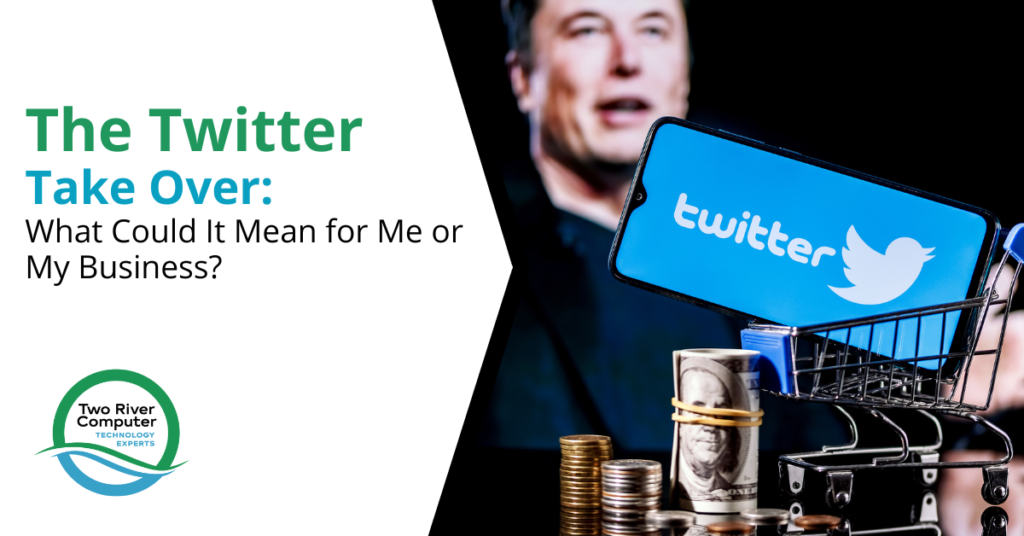
One of the big technology stories in the news lately has people questioning the ramifications of having a single powerful person in charge of public discourse.
We’re talking about the sale of Twitter to Elon Musk, co-founder of Tesla and founder of SpaceX. It was announced at the end of April that Twitter’s board accepted a $44 billon offer from Musk to purchase this major social media platform.
Over 58% of the global population uses social media, with the average daily usage at 2 hours and 27 minutes. Social media channels like Facebook, Instagram, and Twitter have become the place to get news, connect with friends and family, and be influenced (either negatively or positively).
While Twitter may have lost ground recently to TikTok, it’s still an important platform when it comes to information and the marketplace of ideas. It has approximately 211 million daily active users and 83% of the world’s leaders have a Twitter account.
People live on their phones these days. They use them to access business email, business calls, and work applications, in addition to social media apps like Twitter and others. A lot of businesses also use them to market their products and services (you could check here to know more).
The fact that people are rarely without their smartphones means that social media platforms can have even more influence on a person’s life because they essentially carry them around in their pockets all day. Some people will even jump at the latest alert notification and drop whatever else they’re doing to check it out.
So, is this Twitter takeover news just another story of a big company being bought by someone with a lot of money and power? Or is it something that could impact you personally and possibly your company down the line?
We’ll take a look at what we know so far.
What’s the Musk/Twitter Story All About?
The deal that was just approved for Elon Musk to purchase Twitter has been struck, and it’s expected to take about three to six months for all the paperwork to be completed.
Nothing is written in stone yet as to what Musk plans to do with Twitter, but he has mentioned a few things that could come to pass once he gains full control.
Getting Rid of Spam Bots
One of the big drivers of misinformation on social media has been that many accounts that get people riled up with partisan posts aren’t even from real people. They’re spambots run by countries or other entities that have an interest in dividing people to weaken their country as a whole.
They have convincing profiles and photos and claim to be part of some group that appeals to either the left or right. Their posts are designed to foster outrage and will typically be completely fabricated. The goal is to get people to click and share the misinformation.
So, getting rid of those spam bots that aren’t even real people, seems like a good idea, if it can be done without infringing on privacy. This brings us to the next thing that could potentially impact your privacy.
Authenticating All Humans
Currently, when you create a profile on social media, you have a good deal of anonymity. You can use a “handle” and don’t have to expose your email address or even your real name.
But one thing that is connected to getting rid of spambots on Twitter is authenticating people as real-life human beings. This could cause a big loss of privacy.
Social media is already known for its trolls. Imagine if those trolls had your real name and could look up your address on Google? It’s not that hard to pinpoint someone with just a little information about them.
Making the Algorithm Open Source
One potential move that many are lauding as a win for transparency is Musk’s mention of making the algorithm that controls what people see in their feeds, open source. This means that anyone could look at it and see how it works.
There have been a lot of controversies, especially with Meta platforms Facebook and Instagram, lately that algorithms designed by social media companies are hurting kids and adults by rewarding posts designed to be negative and controversial. Some have also been found (on YouTube especially) to send people down negative rabbit holes.
Making the algorithm open source would be a positive move towards transparency and people gaining more control over how they consume social media information.


